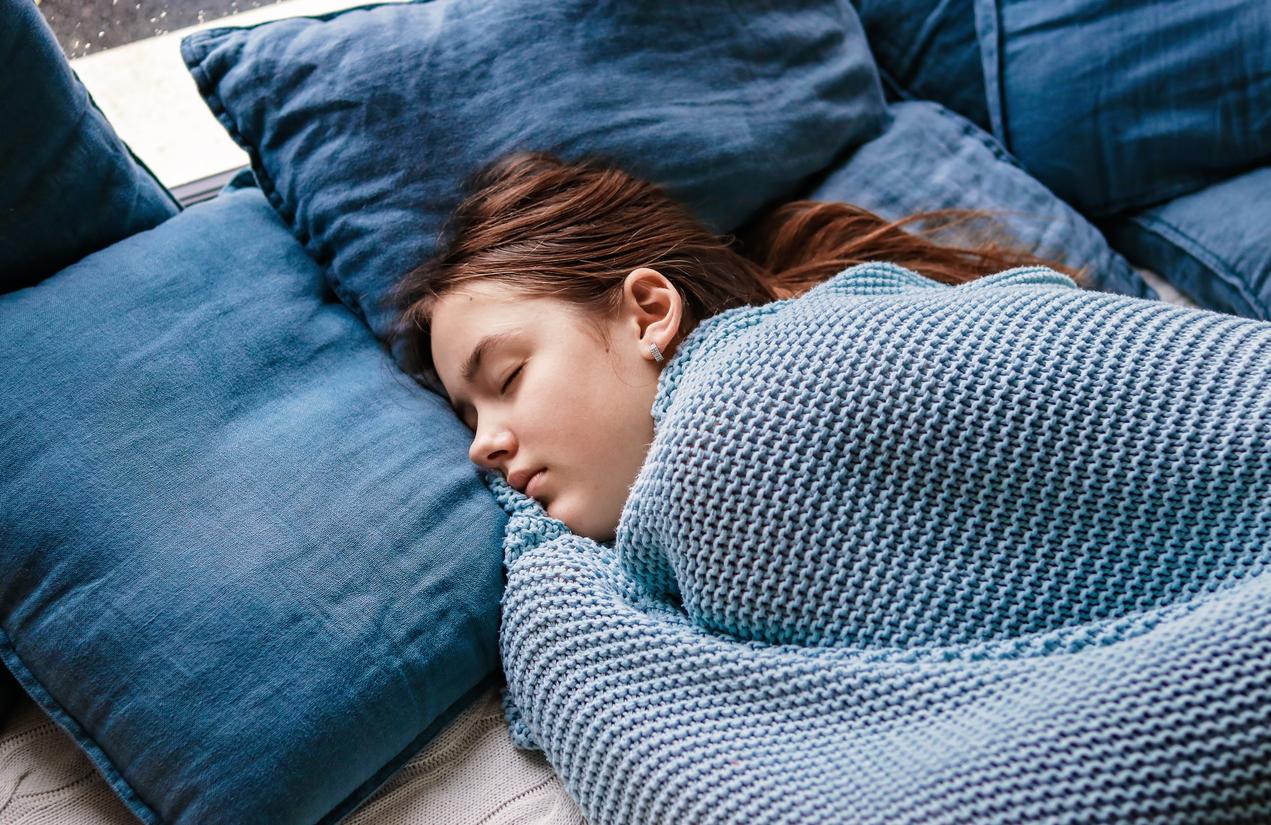Why are social networks so addictive, especially among young people? How should we react as parents when faced with a teenager addicted to this content? We talk about it with Dr Michaël Larrar, psychiatrist and psychoanalyst.

Why doctor: Why are social networks making our teenagers so addicted? What are the risks ?
Dr Michaël Larrar: There are several reasons why social media is so addictive. Firstly, you must know that it is a place of permanent, immediate and easily accessible psychic excitement. There is always something to see to combat boredom. So, when a teenager has a difficulty in his life, whatever it may be, he will try to de-think, that is to say, not to think. It’s a human mechanism, but the problem is that social networks offer content to constantly escape. Adolescents, who are particularly sensitive to toxic substances and addictogens, such as screens, will therefore close themselves off and remain stuck in this escape.
“For adolescents, social networks are linked to the need for seduction and belonging to a group”
Then, to understand addiction to social networks, we must discuss the exhibitionist/voyeurist couple. We have all felt pleasure in looking at each other since we were children: we show ourselves, we spy on our parents… These pleasures are normally not too intense. The problem with social networks is that they increase them and make them feel less guilty: we show our lives, we show off, we play the leading role, except that normally, we have to mourn seduction when we grow up. However, the more we show ourselves on the networks, the more we tell ourselves that people are watching, and the more we tell ourselves that it is normal. And then the fact of seeing what is happening with others also gives an illusion and a voyeuristic satisfaction of knowing everything. In my time, gossip was in the newspaper at the hairdresser’s… We took a look at it once a month, at most, because we opened it and felt ridiculous! Today, everything is constantly on social networks, we are constantly aware of all the stars’ misfortunes, etc. It’s so present that we no longer have any feeling of guilt.
Finally, for adolescents, social networks are linked to the need for seduction and belonging to a group. He has the impression that he must be one and that if he is not one, he is missing something, that he will at some point be rejected by others… And all those who show up having the the appearance of having a good life increases the fantasy. Obviously, this is all very fake, very superficial, and it is also a great waste of mental energy!
“Today in France, it is almost impossible to deprive a teenager of social networks”
As a parent, should we deprive our teenager of these social networks, even if it means that they find themselves apart from their ultra-connected peers?
Today in France, it is almost impossible to deprive a teenager of social networks, quite simply because the teenager will not understand why all his friends have access to them and not him. So either he will reject this order and try to circumvent it at all costs, or he will experience it very badly. As parents, we have to make compromises.
In my opinion, we should not demonize social networks, but warn them against their superficiality, and transmit our values to them by sharing things with them. We also have to “bother” them a little so that they go there less, by limiting their screen time and pushing them to have other activities, because teenagers with passions, like music or sport, consume less social networks than others. But, as teenagers naturally have a passive tendency, parents must have a proactive position! There is no magic element, it is daily work.
Bullying at school existed long before social media, but do you think this amplifies it?
This potentially amplifies its intensity because teenagers use social networks in an extremely direct way, with few filters. The other problem for the victim is that today, she also suffers at home, whereas before, this only happened at school. She can see things posted on newsgroups and can also constantly fantasize about being made fun of on the Internet without her knowing. This creates a larger sounding board.
I also add that teenagers are very sensitive to humiliation. When we make fun of them in class it’s painful, but on the Internet it’s unbearable because there are traces. As such, it is important to teach our children the potential harm they can do with a simple valve. Very often, friendly children do not perceive the destructive power of their words, especially if other classmates laugh at them! We must explain to them that they can be the last straw and that a leak on a social network is much more violent in the psyche than a leak face to face.
Social networks: “the ‘Mcdo thought’ prevails over quality thinking”
You say in your book, The secrets of our unconscious (Ed. Librinova), that for several years, you have been “struck by the collapse of intellectual thought in your young patients”, how do social networks contribute to this?
This has collapsed reading, this exercise which allows us to be calm, to think, to imagine, to daydream… and therefore to increase our sensitivity and ability to understand others! With the Internet, we also give the impression that we can know everything right away without any effort. So in the end, we want everything, right away, which is the opposite of quality reflection which is difficult and painful. There is even something perverse that has taken hold in current thinking: the idea that if information is complicated to understand, it is because it is false. A thought must now be summed up in a punchline… But a fine thought is necessarily complicated! To understand a philosopher, you have to read him for days and days to digest his thoughts. Currently, the “philosophers” of social networks are opposed to this latency, they assert certainties, they make pretentious and very often simplistic and false shortcuts… But as they say with charisma and confidence, it is taken as true by the community. “McDonalds thinking” trumps quality thinking.
How to be optimistic for the future?
As René Diatkine, a great French child psychiatrist, said: “as long as there is a spark left in a child, great things are possible”. So you have to fight, all the time. We must not be defeatist or pessimistic, because adolescents and children have a very great capacity to move their mental energy! We just have to help them put this energy on the right objects.
Find out more: The secrets of our unconscious, published by Librinova.


















